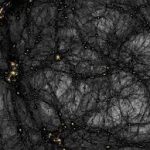Key Takeaways:
- Professor Monica Grady, a planetary and space science expert, suggests the possibility of complex life, potentially possessing “octopus-level intelligence,” on Jupiter’s moon, Europa.
- Europa’s thick ice sheets, possibly concealing liquid water, might harbor life forms shielded from radiation and celestial impacts.
- Grady speculates on the existence of subterranean creatures, perhaps bacteria, in the deeper caves of Mars, seeking refuge from solar radiation and extracting water from buried ice.
- The potential for life on Europa is enhanced by the presence of hydrothermal vents on its ocean floor, analogous to Earth’s life-supporting environments.
- Grady emphasizes the likelihood of life beyond Earth, stating that our solar system may not be unique, and as exploration extends to other stars and galaxies, conditions for life may be found.
In the ceaseless quest for extraterrestrial life, Professor Monica Grady, a distinguished expert in planetary and space science at Liverpool Hope University, has injected a renewed sense of optimism into the cosmic exploration community.
In a recent speech, she posited the intriguing idea that Jupiter’s moon, Europa, might harbor life forms more sophisticated than mere bacteria, potentially possessing intelligence comparable to that of an octopus.
Grady envisions these putative life forms existing in the frigid waters beneath Europa’s extensive ice sheets, a notion that sparks excitement among scientists and alien enthusiasts alike.
Despite lacking concrete evidence, the professor remains resolute in her belief that life on Europa is not confined to microscopic organisms. The possibility of advanced life residing 390 million miles from Earth raises profound questions about the potential diversity of life in our galaxy.
The tantalizing prospect of Europa’s sub-surface inhabitants possessing intelligence akin to an octopus prompts contemplation about their potential habitats.
According to Grady, these creatures could inhabit the vast expanse below the moon’s thick ice layer, which reaches depths of up to 15 miles in certain regions. Conceivably, liquid water beneath the ice may serve as a protective haven against radiation and the impacts of celestial bodies, fostering an environment conducive to complex life.
The foundation for Grady’s optimism lies in the potential presence of hydrothermal vents on Europa’s ocean floor, mirroring similar environments on Earth that support diverse ecosystems. These vents, deemed cradles of life on our planet, enhance the likelihood of Europa harboring life forms beyond our current understanding.
Grady extends her perspective beyond Europa, contemplating the existence of subterranean life on Mars. She speculates that the Red Planet’s deeper caves could be home to bacteria seeking refuge from solar radiation, obtaining water from ice buried beneath the Martian surface. These musings underscore the broader search for extraterrestrial life within our solar system.
Expressing confidence in the potential ubiquity of life, Grady asserts that our solar system may not be exceptional. Statistically speaking, as humanity explores other stars and galaxies, the conditions conducive to life may become increasingly evident. The professor envisions life elsewhere sharing fundamental elements, further emphasizing the interconnectedness of the cosmos.
However, Grady remains cautious about predicting imminent contact with extraterrestrial beings, acknowledging the vast distances that separate us from potential alien civilizations. While the prospect of communication with extraterrestrials is uncertain, Grady draws attention to the intricate composition of extraterrestrial material, exemplified by examining a grain of sand containing elements from meteorites, asteroids, and interstellar dust.
Europa has long captured scientific attention as an “ocean world,” with NASA confirming the presence of water vapor in 2019. While the moon’s environmental conditions appear conducive to life, the question of whether it hosts creatures with “octopus-level intelligence” remains open. Future studies and exploration missions may unveil the mysteries of Europa and, perhaps, provide answers to one of humanity’s most profound questions: are we alone in the universe?


